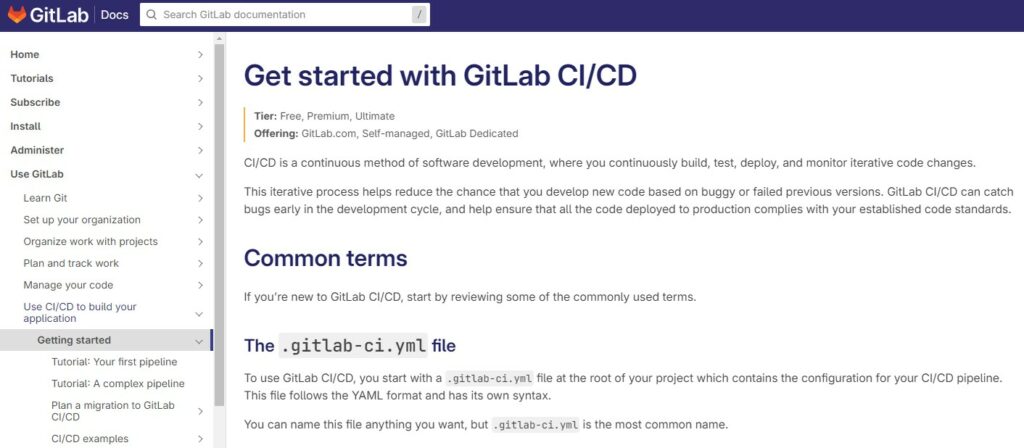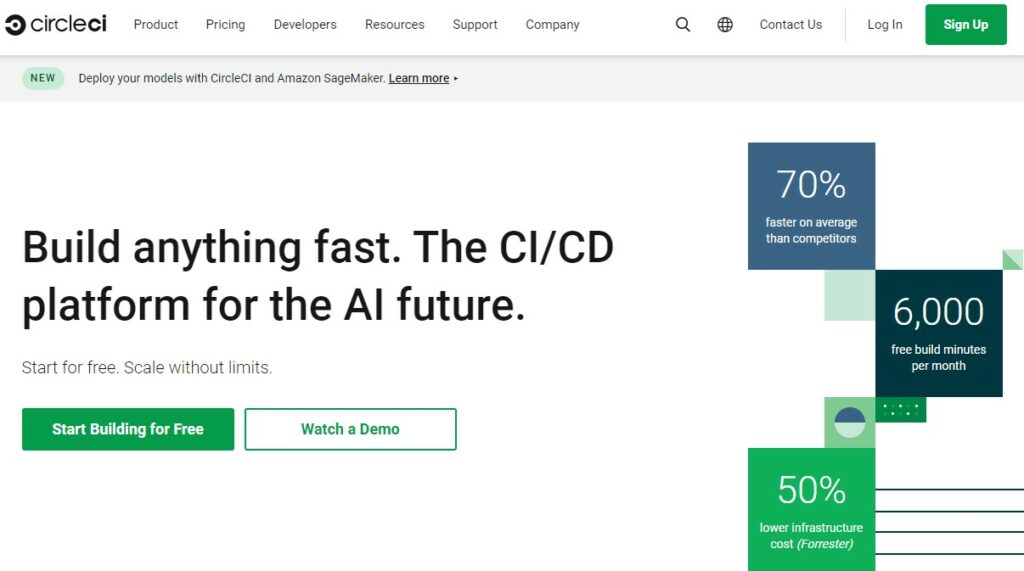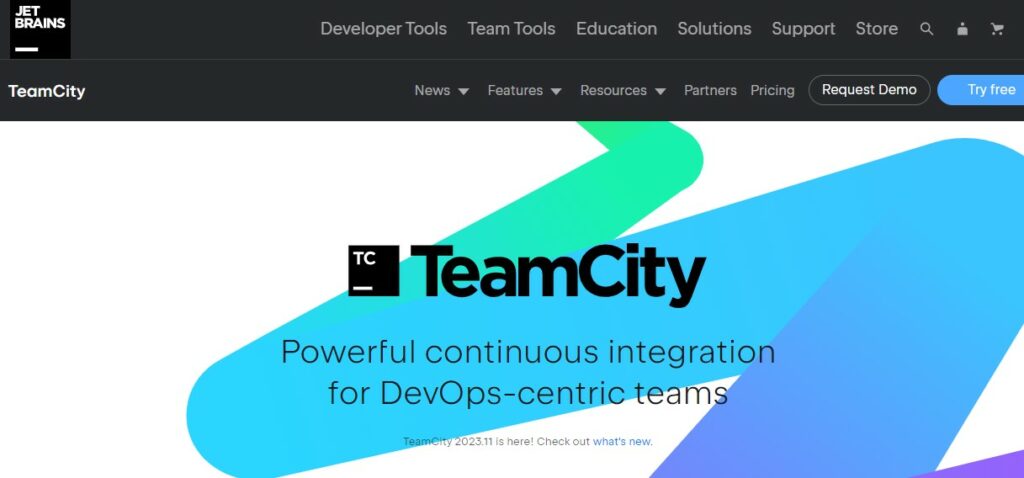There are various Jenkins alternatives in the market that you can use for your operations.
As you navigate the dynamic landscape of software development, you’re likely familiar with Jenkins.
Jenkins is an open-source automation server that has become a staple in many DevOps toolchains.
Its robust features for continuous integration and delivery have made it a go-to choice for teams looking to streamline their development process.
However, Jenkins isn’t the only player in the field, and you might find yourself needing something different as your project’s requirements evolve.
Exploring alternatives to Jenkins can open up new avenues for improving your build, test, and deployment cycles.
Many tools offer unique benefits, such as intuitive interfaces, better integration with current technologies, and features that align more closely with your project’s specific needs.
Tools like Travis CI, GitLab CI, and CircleCI stand out as popular options, each offering distinct advantages from easy project syncing to extended integration capabilities.
Additionally, if you’re already utilizing services from providers like Atlassian, a transition to a tool like Bamboo could seamlessly fit into your existing workflow, allowing you to leverage your familiarity with its ecosystem.
Understanding the breadth and depth of Jenkins alternatives helps ensure that you select a tool tailored to your preferences.
Whether you’re seeking simpler configuration, better integration, or just a different approach to continuous integration, there is a range of solutions to consider that might better align with your development goals.
Keep in mind that your chosen tool should not only address current demands but also anticipate the growing needs of your projects.
Main Jenkins Alternatives
When you’re seeking versatile tools for continuous integration and delivery, there are several Jenkins alternatives that stand out for their robust feature sets and user-friendly interfaces.
1. GitLab CI

GitLab CI is integrated directly into the GitLab ecosystem, which means you get a comprehensive DevOps platform right out of the box.
It simplifies the process by coupling source code management with CI/CD tools, allowing you to manage your project’s workflow in one place.
2. CircleCI

With CircleCI, you gain access to a cloud-based CI/CD tool that emphasizes ease of maintenance and flexibility across different platforms.
It’s designed to work efficiently with Docker, Python, and API servers, ensuring a multi-platform approach for your automation needs.
3. Travis CI

Travis CI is another continuous integration service that specializes in testing your projects.
You’ll appreciate its easy setup and the way it integrates smoothly with other tools like Docker and JIRA.
Its APIs are well-defined, making it straightforward to extend and customize your CI/CD workflows.
4. TeamCity

Lastly, TeamCity by JetBrains offers a powerful CI/CD solution with a variety of features like build history, detailed real-time reporting, and customizable build configurations.
TeamCity is especially known for its clear cut-through visualization of complex workflows, easing the CI/CD process for developers.
Comparison of Alternatives
When looking for a Jenkins alternative, you’ll compare factors like how easy the tools are to use, integration with other systems, customization options, and the community and support provided.
Ease of Use
Some alternatives pride themselves on a more intuitive interface compared to Jenkins.
For example, GoCD offers the ability to model and view complex workflows easily.
Others are praised for their straightforward documentation and easy setup processes.
Integration Capabilities
Integration is a strong point for many Jenkins alternatives.
Tools like CircleCI and Travis CI provide robust integration with Docker, JIRA, and various other tools, ensuring they fit seamlessly into your existing tech stack.
Customizability
Customizability determines how well you can tailor the tool to your specific needs.
Solutions that offer well-defined APIs, like some Jenkins alternatives, enable extensive customization and extension of their capabilities.
Community and Support
The backing of a strong community and comprehensive support can be crucial.
Platforms like GitHub and solutions from CloudBees often have large user bases and formal support channels, ensuring you have assistance readily available.
Self-Hosted vs Cloud-Based Solutions
When you’re looking to replace Jenkins for your CI/CD needs, you’ll need to make a crucial decision between self-hosted and cloud-based alternatives.
Each approach comes with its own set of benefits that may be more suitable depending on your team’s specific requirements.
Self-Hosted CI/CD Tools:
- Control: You have complete authority over updates and security, ensuring that changes happen on your schedule.
- Customization: Full access to the underlying infrastructure allows for deep customization to fit your workflow.
| Pros | Cons |
|---|---|
| – Total Configurability | – Requires own server maintenance |
| – Better for sensitive data | – Potentially higher upfront costs |
| – No internet dependency | – Scaling can be complex |
Cloud-Based CI/CD Tools:
- Convenience: Skip the server maintenance and jump straight into automating your pipelines.
- Scalability: These platforms grow with your needs, often offering flexible pricing options.
| Pros | Cons |
|---|---|
| – Quick Setup | – Less control over the infrastructure |
| – Hassle-Free Maintenance | – May have data security concerns |
| – Auto-Scaling | – Ongoing subscription costs |
Remember to consider integrations when choosing your solution.
While self-hosted tools might require more initial configuration to integrate with services like Docker or JIRA, cloud-based solutions such as CircleCI offer seamless connections with a variety of existing technologies, including AWS and Slack.
Each solution has a unique feature set tailored to different development environments.
Assess your team’s needs carefully to determine which option aligns best with your workflow.
Decision Factors
When considering Jenkins alternatives, you need to evaluate various decision factors that align with your project’s needs and goals.
These factors include the size and complexity of your projects, budget constraints, and the necessity for particular integrations.
Project Size and Complexity
- Small to Medium Projects: For less complex projects, you might prioritize ease of use and quick setup.
- Options like CircleCI offer cloud-based solutions that are maintenance-free and multi-platform capable.
- Large-scale Projects: If your project is more complex, look for scalability and customization.
- Tools like GitLab CI/CD and TeamCity provide extensive configuration options and capabilities that handle large codebases and intricate workflows.
Budget Considerations
- Free Options: Jenkins itself is free, and many of its alternatives provide free versions that might suffice if your needs are basic.
- Paid Versions: For advanced features and commercial support, you’ll likely look at paid offerings.
- Understanding the pricing model is crucial; some tools charge per build minute, while others offer flat rates.
Required Integrations
- Tool Ecosystem: Your CI/CD tool should seamlessly integrate with tools you already use, like Docker, JIRA, and source code repositories such as GitHub or Bitbucket.
- APIs for Extension: If customization is a priority, seek tools with well-documented and defined APIs.
- This will allow you to extend functionality as your requirements evolve.
Key Takeaways
When exploring Jenkins alternatives, you have several reliable options to consider:
Buddy
- Ease-of-Use: Buddy offers a user-friendly UI/UX, streamlining CI/CD processes.
- Configuration: Minimal configuration needed, reducing the need for dedicated DevOps resources.
CircleCI
- Flexibility: CircleCI is a cloud-based tool that’s easily maintainable and offers great flexibility.
- Multi-Platform Support: Whether you’re working with Python, API servers, or Docker, CircleCI has you covered.
Travis CI
- Cloud-Based: Provides a straightforward cloud-based solution that’s simple and scalable.
GitLab CI/CD
- Comprehensive: A robust, all-in-one solution integrating seamlessly with GitLab’s suite of tools.
TeamCity
- Customizable: TeamCity is known for its powerful customization options and a strong set of features.
When choosing your CI/CD tool, consider your project needs, infrastructure, and the level of support you require.
Each of these platforms has its own strengths.
Some are known for their ease of use and low maintenance.
Others offer comprehensive solutions that cover every aspect of the DevOps pipeline.
Your choice should align with your project requirements and team expertise.

